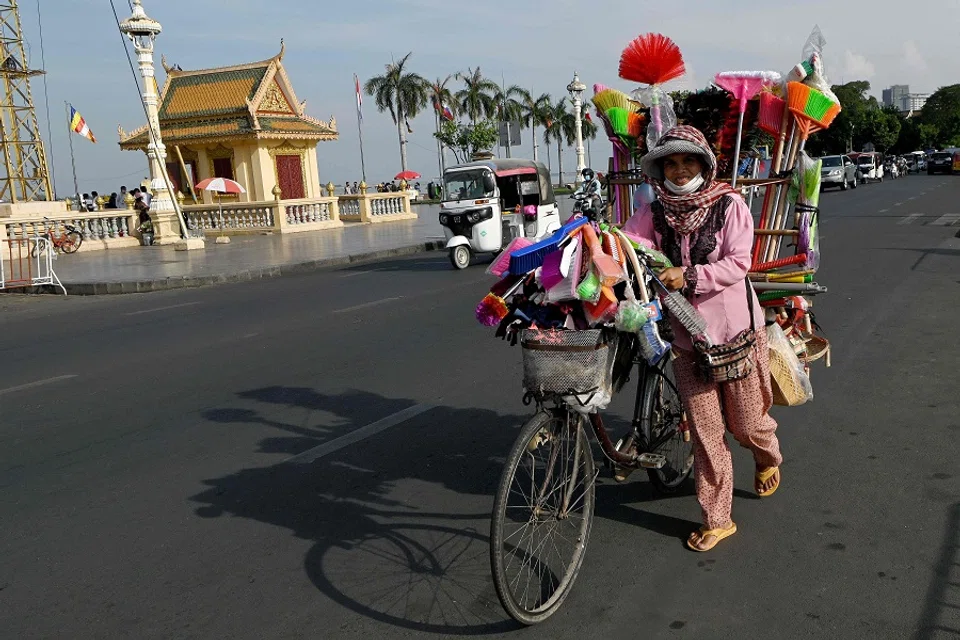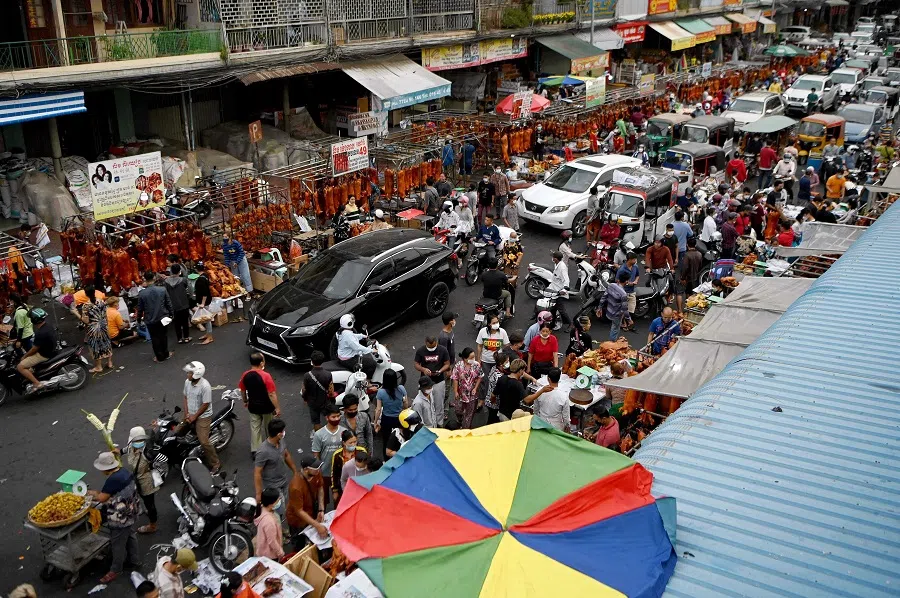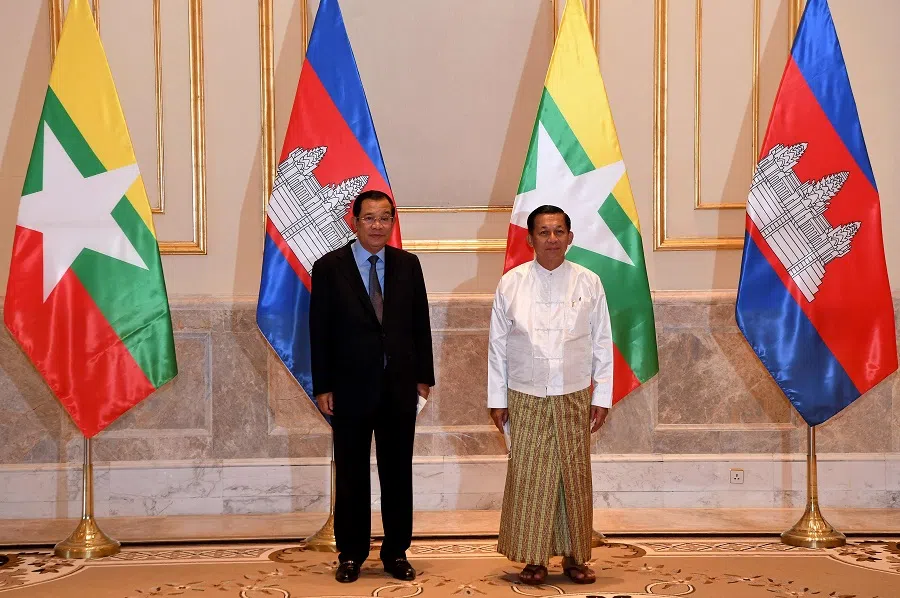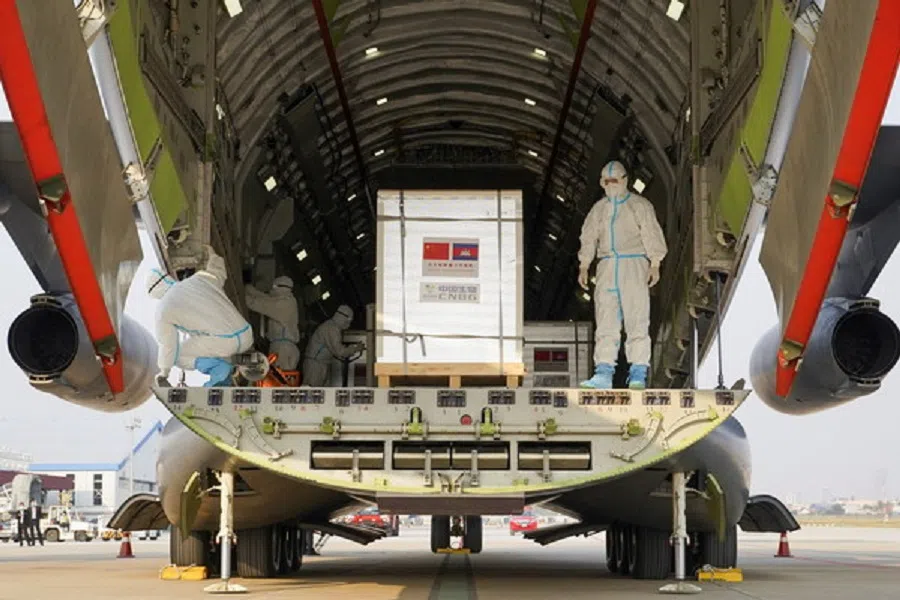How will Cambodia manage the ASEAN chairmanship and China relations?
Though small, Cambodia is a state with agency, says Cambodian researcher Chheang Vannarith. The country has shown that it can stand up for what it believes in at key moments, such as when it decided to co-sponsor the UNGA resolution demanding Russia to withdraw its forces from Ukraine. As ASEAN chair for 2022, it seeks to bridge differences, and even if it has the image of being dominated by close friend China, this does not mean that it will do its every bidding.

Between ASEAN and China, which one does Cambodia choose? This is a common question posed to Cambodian policymakers and researchers.
The answer is Cambodia does not have to choose between ASEAN and China. Cambodia is pro-Cambodia. Cambodia's foreign policy doctrine is pragmatism, and the best choice is to shape or transform the external environment in whatever way possible to serve its core national interests.
ASEAN is regarded as the cornerstone of Cambodia's foreign policy and China is perceived as its key comprehensive strategic partner. Cambodia is trying to build a bridge of trust and opportunities between ASEAN and China by expanding the areas of cooperation that bind while resolving and reducing the issues that divide.
Small states have agency
The main characteristics of Cambodia's foreign policy behaviour since the turn of the century have been independence and self-determination. Although it is a small and weak country, it does not mean that Cambodia does not have agency.
For instance, in 2017, Cambodia was the first country in Southeast Asia to openly support Japan-proposed Free and Open Indo-Pacific (FOIP) knowing that it would hurt China's feelings and geostrategic interests.

And lately, Cambodia made a surprise move by co-sponsoring the UN Resolution on the situation in Ukraine with the awareness that it would hurt its relations with Russia. The decision was made based on the principle of international law and not on taking sides.
Cambodia has consistently been against the violation of sovereignty, territorial integrity and political independence of other UN member states. The international order based on international law is the best option to protect the interests of small states although in some instances it is against the selected interests and intentions of certain major powers.
Cambodia also advocates for an open, inclusive and rules-based multilateralism.
Navigating complex issues as ASEAN chair
Under the theme "ASEAN A.C.T.: Addressing Challenges Together", Cambodia, who is the ASEAN chair this year, is striving to revive the spirit of togetherness of the grouping, strengthen the ASEAN-led multilateral system, and boost action-oriented regional cooperation, in the hope that ASEAN can stay relevant in shaping the regional and international order.
2022 looks to be a tough and turbulent year for ASEAN. The unfolding socioeconomic impacts caused by the Covid-19 pandemic and climate crisis remain unsettled. In addition, the ongoing political and humanitarian crisis in Myanmar and the escalating war and violence in Ukraine further complicate the situation.
The Cambodian government is afraid that ratifying UNCLOS will not serve Cambodia well in its negotiations with its neighbours on maritime boundary demarcation as its claims are based on the administrative lines drawn by the French protectorate.

The visit of Cambodian Prime Minister Hun Sen to Myanmar early this year made the headlines. There were mixed views regarding tangible outcomes. Nevertheless, the visit was widely regarded as an "ice-breaking" mission to open the door for future dialogues and engagement.
Consultation and consensus-building have been the strengths of ASEAN. Internal consultation among the ASEAN members to develop a common understanding, position and approach on emerging regional issues has proven to be critical.
After rounds of bilateral and multilateral consultations with ASEAN members, Cambodia changed its earlier attempt to invite a political representative from Myanmar to attend the ASEAN meetings. It decided not to do so unless there was significant progress regarding implementing the ASEAN's Five-Point Consensus.
The South China Sea agenda remains complex and controversial, and the negotiation on the Code of Conduct in the South China Sea (COC) has been painfully slow. Moreover, within ASEAN, the difference of views over the primacy of the 1982 UN Convention on the Law of the Sea (UNCLOS) remains deep. Cambodia, for instance, is not keen on giving primacy to UNCLOS as it has not ratified it.
The Cambodian government is afraid that ratifying UNCLOS will not serve Cambodia well in its negotiations with its neighbours on maritime boundary demarcation as its claims are based on the administrative lines drawn by the French protectorate.
The Cambodia chair wishes to see the conclusion of the COC this year, but according to the latest round of COC negotiation this month, the chance of that happening this year is very slim.

Cambodia supports ASEAN's position on the call for peaceful settlement of disputes in accordance with the universally recognised principles of international law, including the 1982 UNCLOS, but not "particularly 1982 UNCLOS".
The Cambodia chair wishes to see the conclusion of the COC this year, but according to the latest round of COC negotiation this month, the chance of that happening this year is very slim. It will take a longer time than expected.
Under China's influence, but not without strategic autonomy
Cambodia faces an image problem regarding the South China Sea issue. It has been accused of taking sides with China, especially the failure of the ASEAN foreign ministers meeting in 2012 in issuing a joint communique due to the differences over the South China Sea.
The Cambodia chair then accused Vietnam and the Philippines of blocking the statement. With the leadership role of Indonesia, ASEAN managed to issue a separate six-point statement on the South China Sea.
By all accounts, China has a strong influence in Cambodia. The 2022 State of Southeast Asia survey report by the ISEAS-Yusof Ishak Institute confirms this. Remarkably, 84% of the Cambodian respondents said that China was the most influential economic power, and 75.3% viewed China as the most influential political-strategic power.
...although China has gained and secured remarkable influence in Cambodia, it does not mean that Cambodia is a vassal state of China.

Such perceptions are partly shaped by China's significant support to Cambodia in responding to the Covid-19 pandemic, which has ranged from providing facemasks to vaccines. China even agreed to build a factory to produce vaccines in Cambodia. Moreover, this year, Cambodia and China started enforcing their bilateral free trade agreement, allowing more market access to Cambodian products to the Chinese market.
However, although China has gained and secured remarkable influence in Cambodia, it does not mean that Cambodia is a vassal state of China. On the contrary, Cambodia still has agency and strategic autonomy even though the space to manoeuvre is getting narrower due to sharpening geopolitical rivalries between major powers.
Japan and the EU are potential partners that Cambodia and ASEAN can hedge its bets with.
A hedging strategy is being delicately carried out by the Cambodian state actor. Strategic and economic diversification as well as promoting the institutional hedging capacity of ASEAN have been the two elements of the hedging strategy. China is obviously not the only strategic partner of Cambodia. Japan is another strategic partner that Cambodia can rely on, and the country is going to build more strategic partnerships with other like-minded partners.
The European Union (EU) for instance is regarded as a "natural partner" of Cambodia and ASEAN in navigating intensifying China-US rivalries. Japan and the EU are potential partners that Cambodia and ASEAN can hedge its bets with.
The Cambodian government regards ASEAN as a shield to protect its national interests and a pertinent platform to reach out to the region and the world. However, there is a growing concern among the Cambodian ruling elites that the geopolitical fault line between mainland and maritime Southeast Asia is getting clearer. The differences in approaching the Myanmar issue manifested that political divide.
Cambodia's foreign policy posture has been carefully crafted based on its calculated national interests mainly defined in terms of economic interests. Foreign policy is a tool to realise the national agenda, or in other words, foreign policy is an extension of domestic politics.
Related: Is Cambodia overly dependent on China? | How China became Cambodia's important ally and largest donor | Japan passes China in the sprint to win Cambodian hearts and minds | Cambodia: Hard landing for China's soft power? | Is Chinese support the main reason for Cambodia's success with pandemic control?



![[Video] George Yeo: America’s deep pain — and why China won’t colonise](https://cassette.sphdigital.com.sg/image/thinkchina/15083e45d96c12390bdea6af2daf19fd9fcd875aa44a0f92796f34e3dad561cc)
![[Big read] When the Arctic opens, what happens to Singapore?](https://cassette.sphdigital.com.sg/image/thinkchina/da65edebca34645c711c55e83e9877109b3c53847ebb1305573974651df1d13a)
